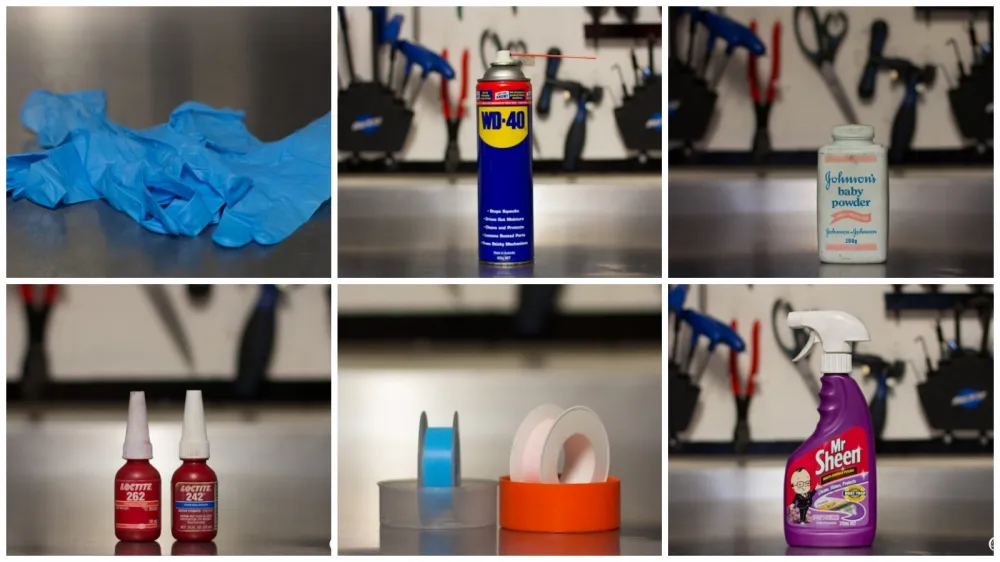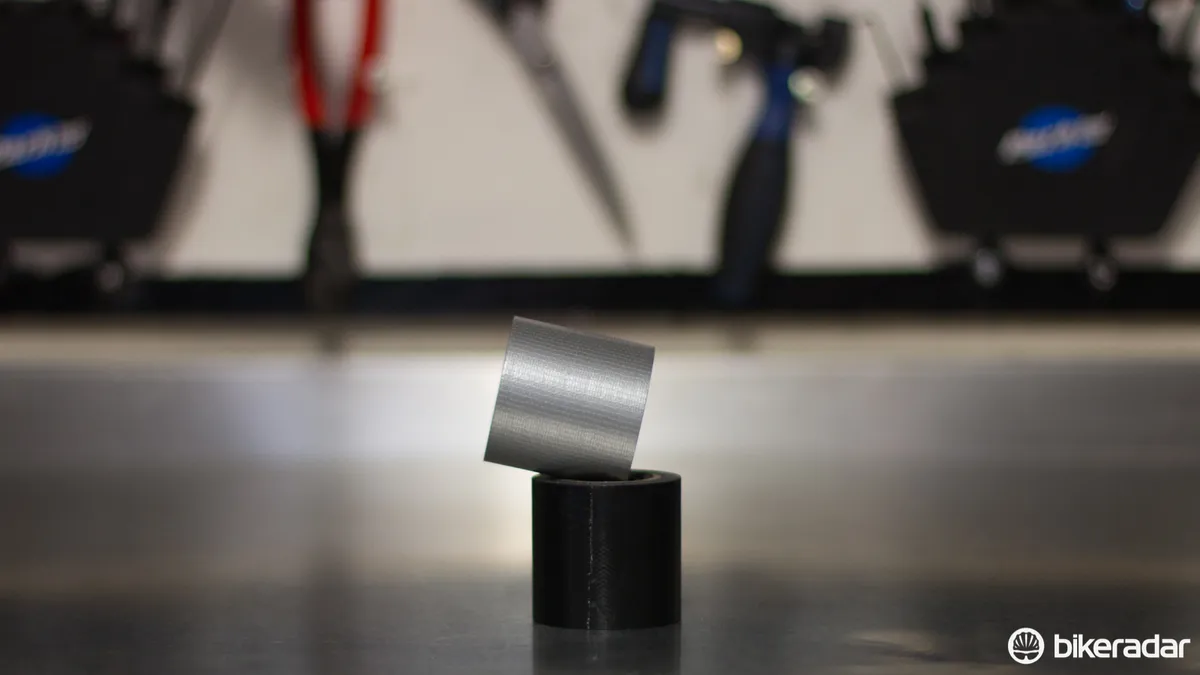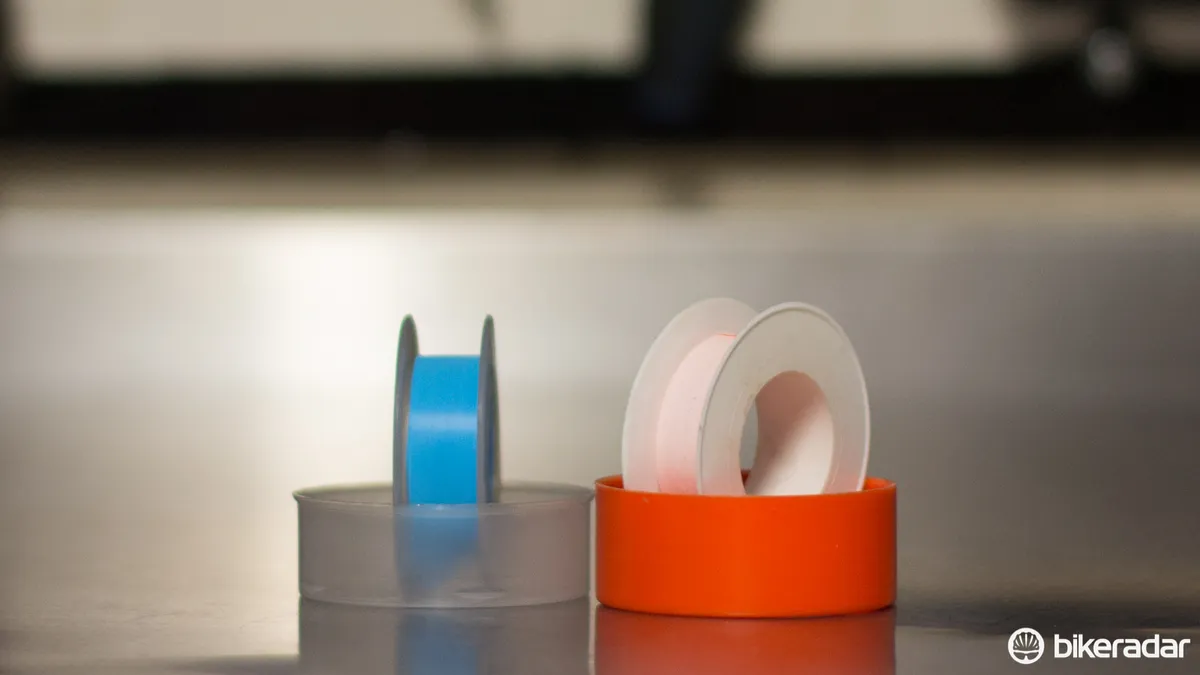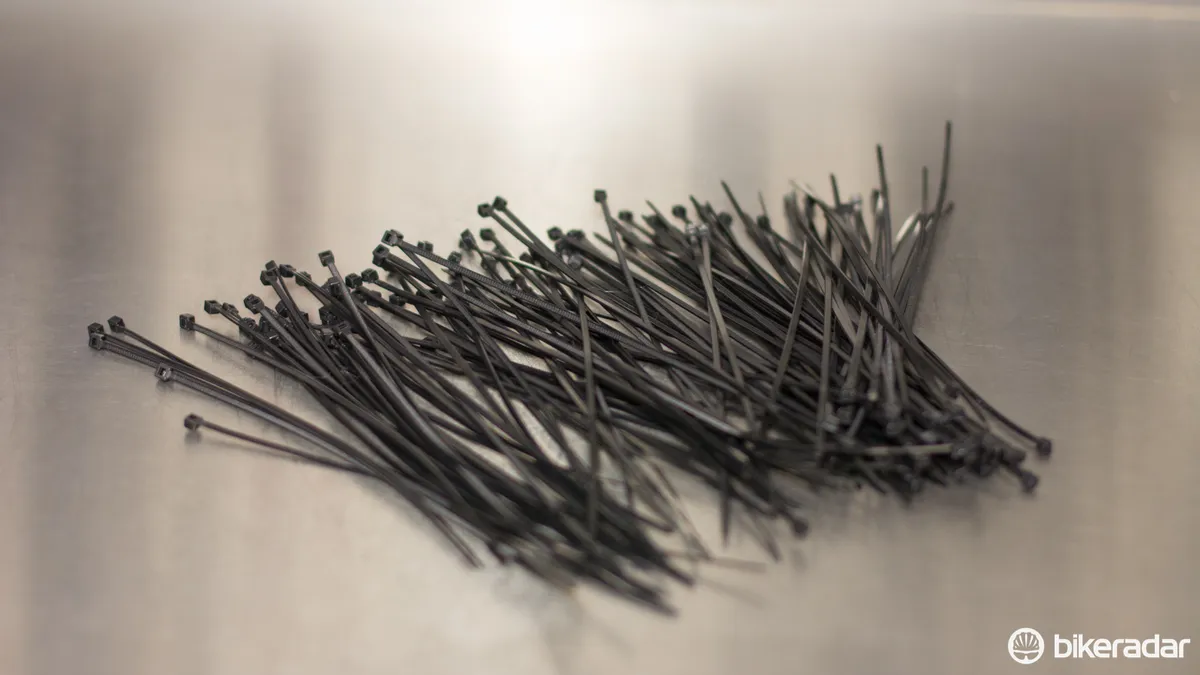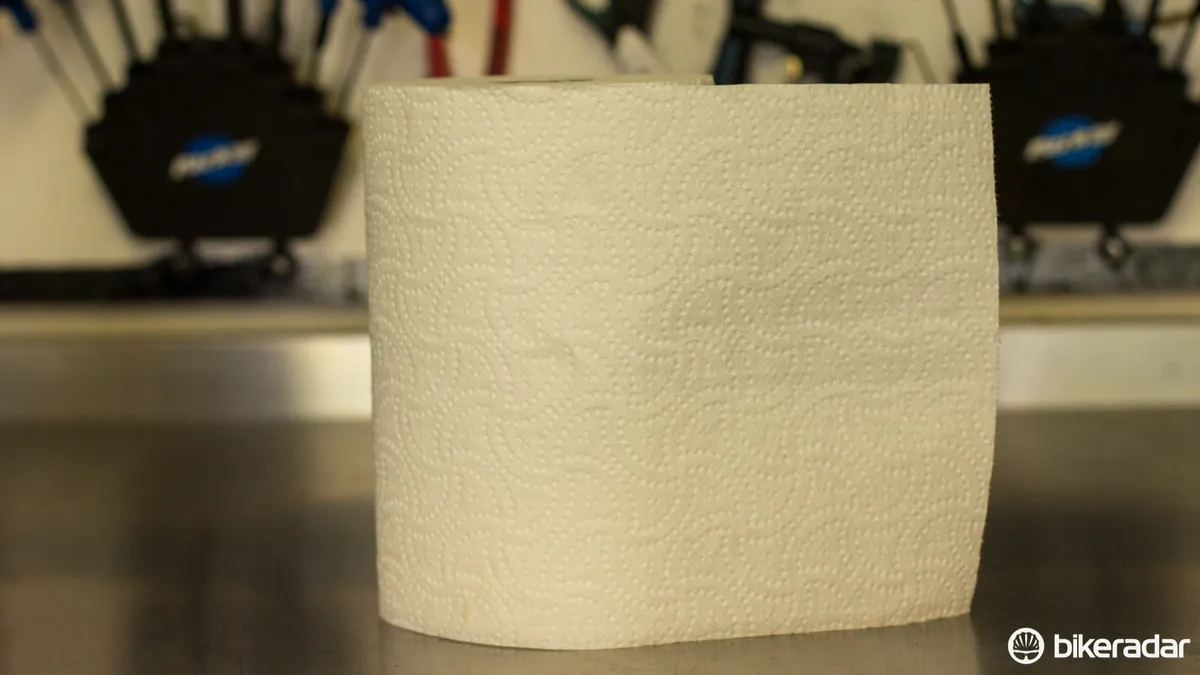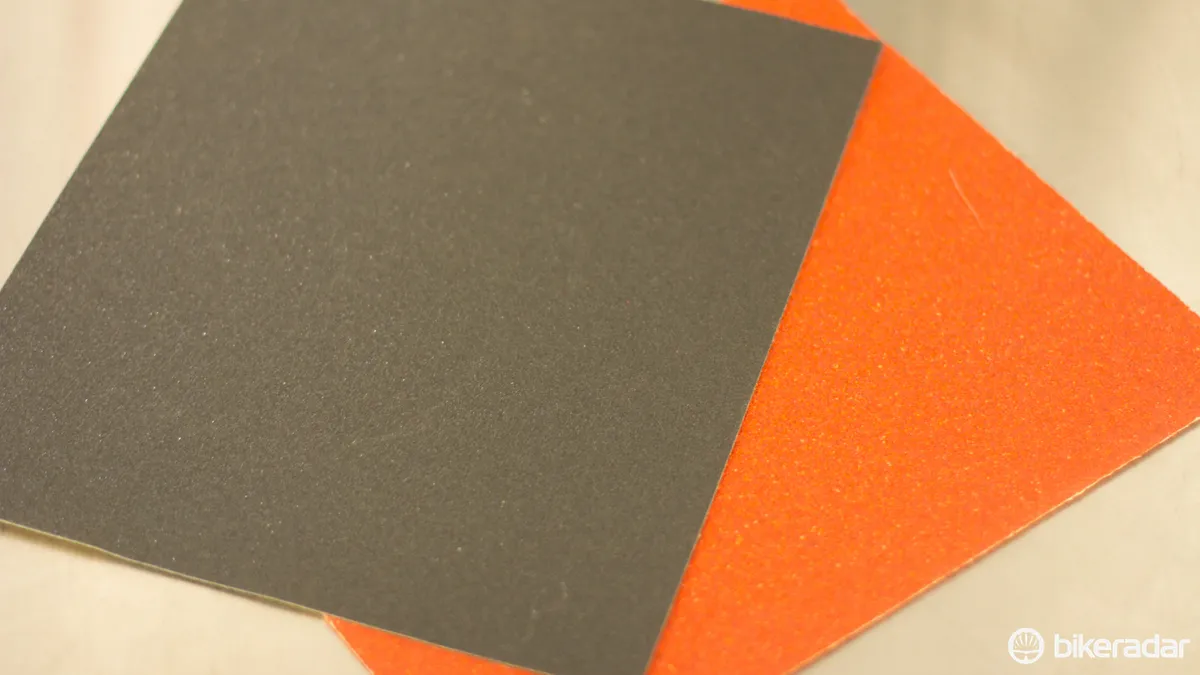We’re often just as guilty as the rest of the cycling media of only reviewing or testing a product if it's branded a bike product. But there's a plethora of consumable items that can be bought from your local hardware store, pharmacy or supermarket that are very useful to have around your home workshop — and it's likely that your local bike shop uses them too. If you don’t already, keep these items on hand as they can come in useful when working on bikes.
- 12 maintenance misconceptions that could be costing you time and money
- Here's why you shouldn't buy the cheapest tools
- 10 reasons why your shifting sucks
It’s worth mentioning that while there are plenty of consumable items you can buy from outside the bike industry, I still choose to use greases, lubes and cleaning agents from the known cycle guys. My experience is that more generic stuff usually isn’t as good.
Electrical tape
Where to buy: hardware store
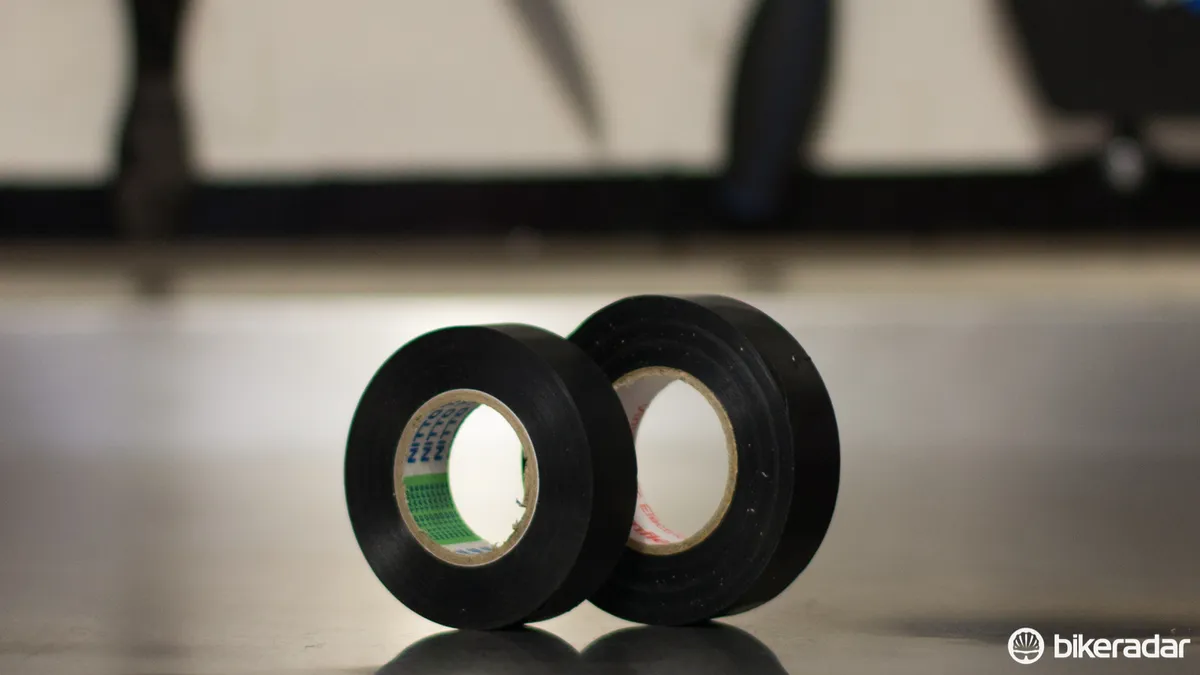
Electrical tape is useful for finishing off bar tape like a pro and marking seatpost height before removing the post. The finishing tape included with most bar tape is best for the bin, or to be used over the top of a neat electrical tape wrap.
I use tape from 3M or Nitto, cheaper stuff tends to become a gooey mess overtime.
Isopropyl alcohol
Where to buy: supermarket or pharmacy
Sold in most drug stores, this is the stuff recommended by most major disc brake manufacturers as the right cleaner. No, it’s not as hardcore as a brake cleaner, but it won’t dry out your piston seals, effect paint, or your lung health either. Don’t drink it.
Paper towel
Where to buy: supermarket
Paper towel is perfect for when you need to ensure cleanliness. Another great use for paper towel is to quickly create a clean working base on your bench for a place to open bearings or rebuild a suspension fork.
Cable ties
Where to buy: hardware store
Cable ties (AKA zip ties) are a staple in the mountain bike world, but less common on road bikes. Either way, these plastic things are handy to keep around for guiding cable housing, mounting computers or just measuring suspension sag.
I always keep a selection of sizes, but my favourite is the 2.5mm (width) x 200mm (length) size, which is slim and long enough to fit through and around just about anything on a bike. When you’re done, trim the edge perfectly flush, otherwise you may cut yourself on it at a later date.
Threadlocker
Where to buy: hardware store
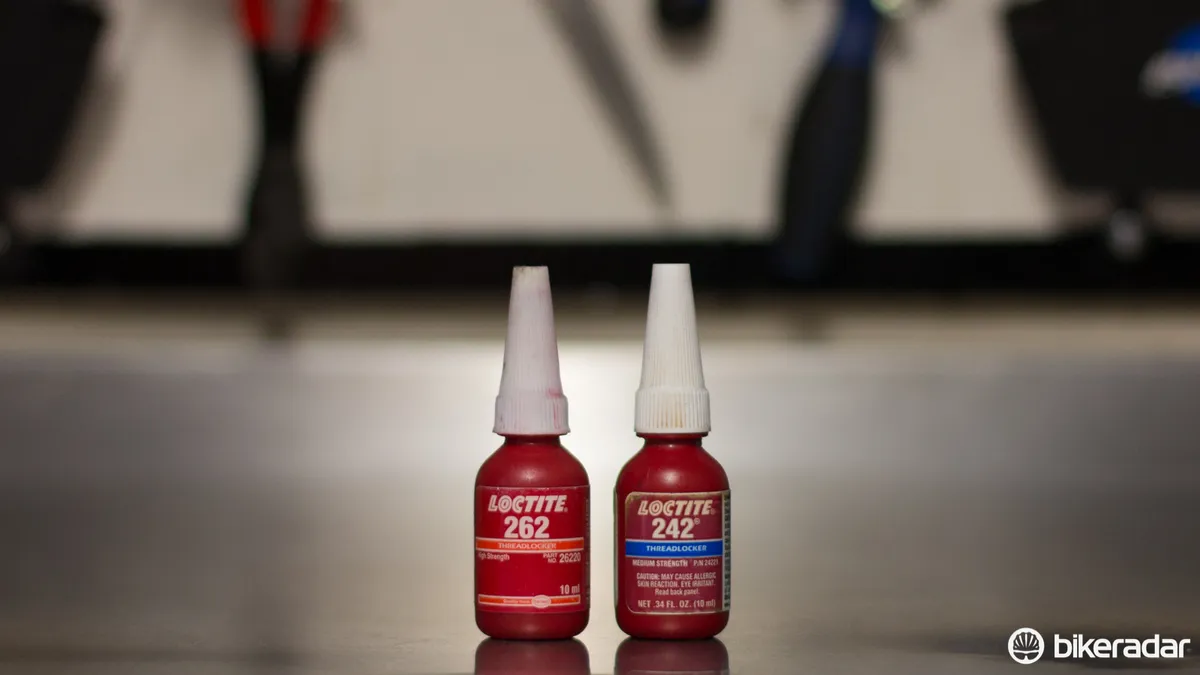
Effectively a light adhesive and anti-seize for threaded parts, it’s common to see Threadlocker recommended when working with brakes, suspension pivot bolts or other items that have a tendency to work themselves loose.
While there are many different grades of thread-locking goodness, the blue (medium strength) and red (high strength) from Loctite are the most common. If you’re unsure which to buy, start with a small bottle of blue.
Duct/cloth tape
Where to buy: hardware store
Super handy to have around regardless of a bike, this stuff can be used in a pinch to temporarily repair a tyre cut or ripped saddle, or stop a valve from rattling in a rim.
Cleaning brushes
Where to buy: supermarket, hardware store or auto-repair store
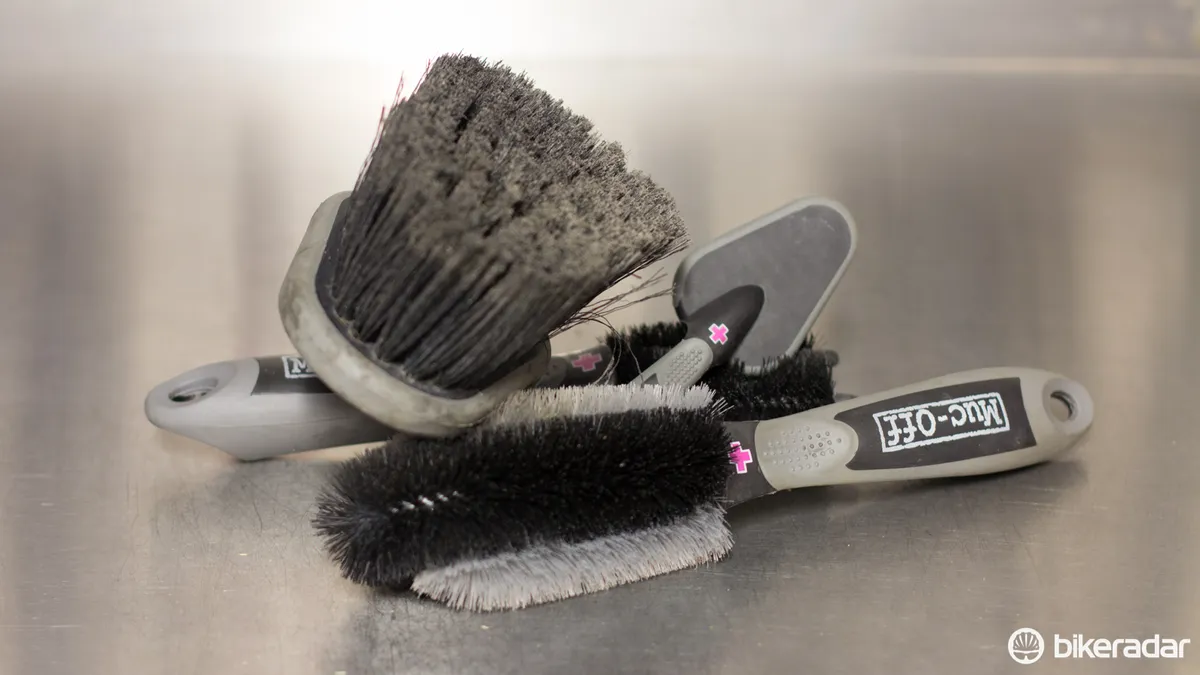
These soft bristled brushes sold by some bike maintenance brands are very good, but you can pick up similar items elsewhere for less.
For frame cleaning, find brushes designed for car washing with ultra soft bristles. For wheels, you want something with a stiffer bristle, such as those used for dishes. For getting between sprockets, it’s still hard to beat the likes of Park Tool or Muc-Off bicycle specific brushes.
Furniture polish/cleaner
Where to buy: supermarket
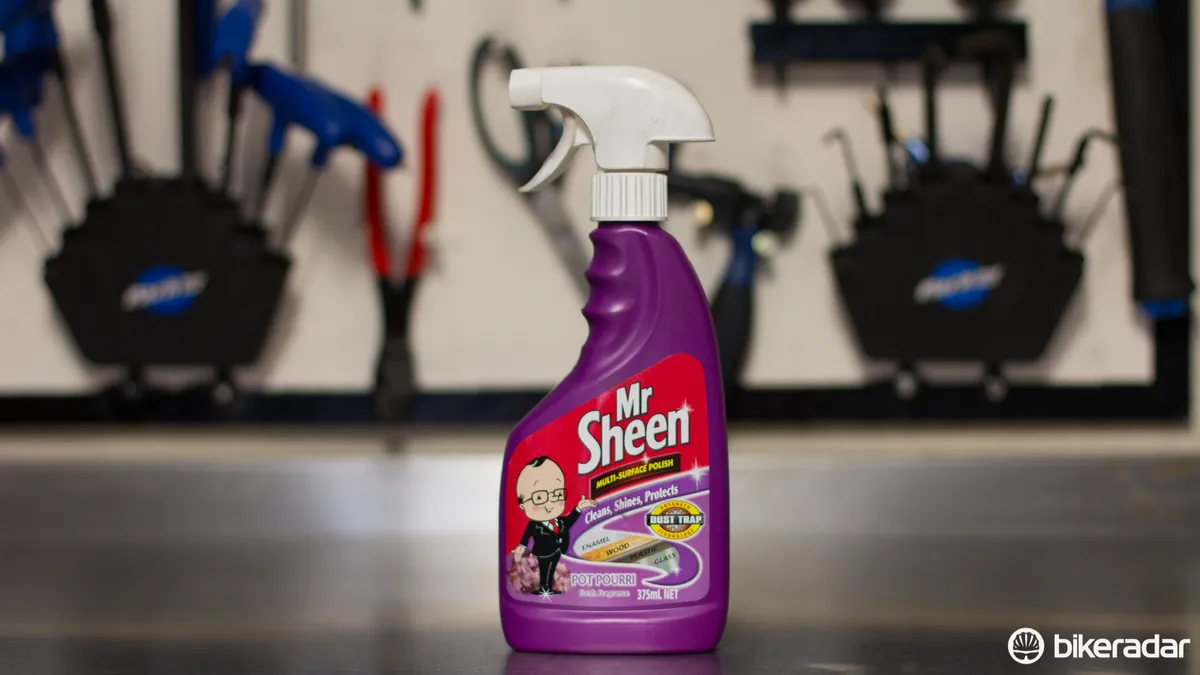
I’ve used Mr Sheen, an Australian furniture cleaner and polish, in bike shops for years. It does a great job of cleaning your frame and leaving a nice shine that prevents further dirt sticking.
As this stuff will affect your brakes, it’s best to avoid the aerosol version. Stick with a trigger action bottle and be careful where you spray it.
While this product is available in Australia and the UK, I’m unaware of an equivalent in the US. Instead, bicycle products such as Pedro's Bike Lust and Finish Line Showroom Polish will do an even better job, just at a higher price. Car polishes are another option, although it's common for these to be equally priced to the bicycle branded stuff.
Emery cloth (or sandpaper)
Where to buy: hardware store
Perfect for rubbing down squealing disc brake pads, finishing the edges of something you’ve just cut, fixing a burred chainring or just roughing up a tube before patching it.
You don’t want too fine a grit — a grit of 120 or below will do the job well. I cut little pieces as I need them, that way the rest of the sheet stays clean.
Talcum powder
Where to buy: supermarket or pharmacy
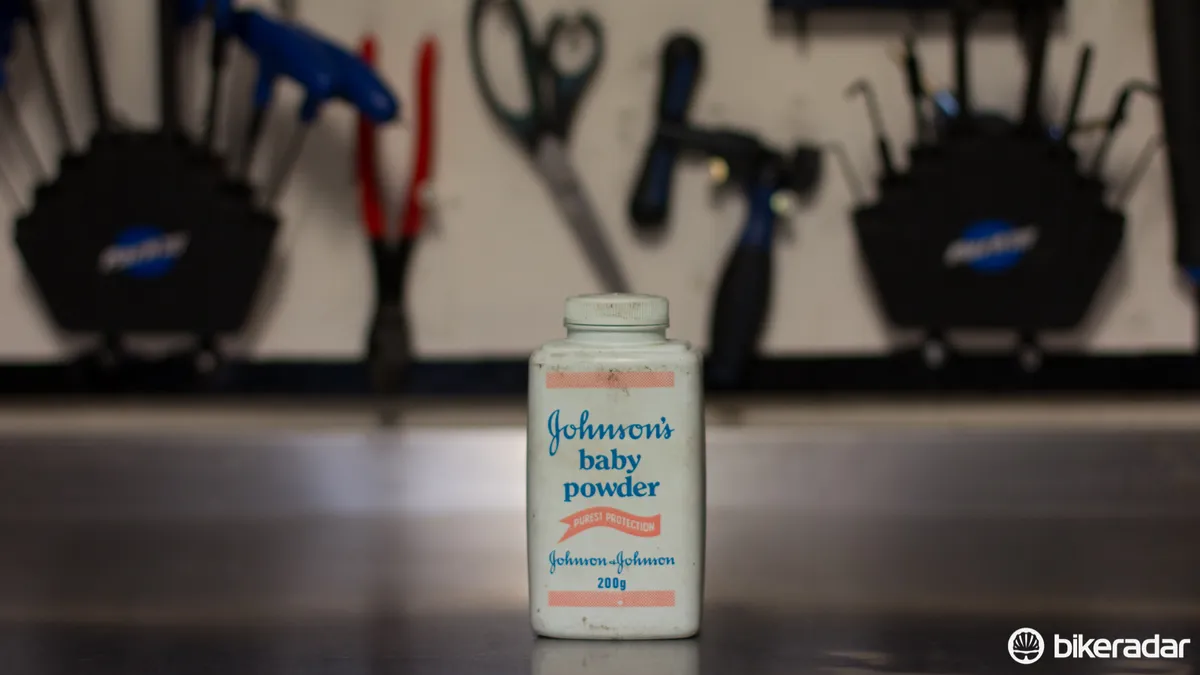
If you’re running inner tubes, consider a little talcum (baby) powder in your tyres. It will prevent the inner tube sticking to the inside of your tyre and may just thwart the dreaded pinch flat.
Rags
Where to buy: hardware store (or already in your closet!)
Obvious what this one is for, but always keep a fresh supply around. You can buy a bag of pre-cut rags from a hardware store, but old T-shirts or towels obviously work a treat too. It's best to stick with cotton because other materials tend to smudge rather than collect the grime.
WD-40
Where to buy: hardware store
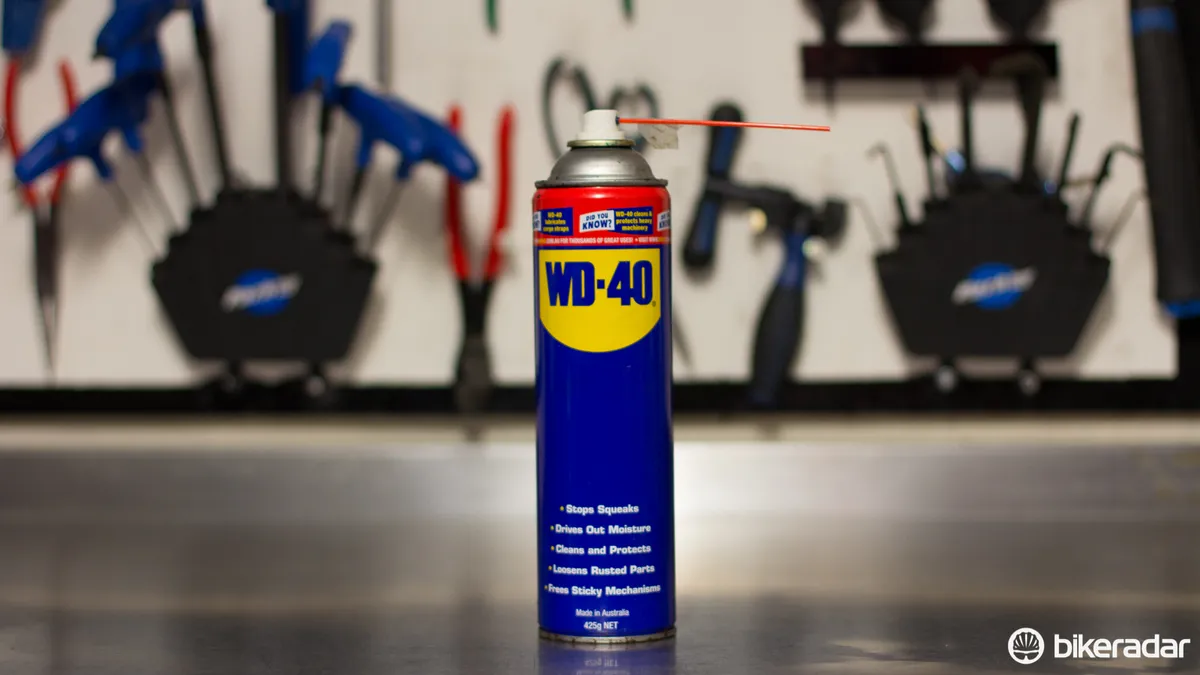
The multi-use ‘lubricant’ that likely sits on every garage shelf — and should only be needed if working on an older bike. While it’s not the very best at any one purpose, and I don’t consider it a lubricant suitable for bicycle use, it can help with stubborn bolts and freeing rusty components. All that being said, I now use Finish Line’s Chill Zone for these purposes.
Thread seal tape
Where to buy: hardware store
Also known as plumber's tape or Teflon tape, thread seal tape is designed to create a watertight seal on plumbing and gas joints. This tape is perfect for use on threads of loose fitting tubeless valves, leaking valve extenders and creaking threaded bottom brackets.
Disposable gloves
Where to buy: supermarket, hardware store or auto-repair store

Some chemicals in a workshop aren’t good for you or your skin. Disposable gloves are recommended whenever you’re working with degreasers, brake fluid or suspension fluid — or just want to keep your hands clean.
While they're a little more expensive, I use disposable Nitrile gloves because they offer better grip and durability. Don’t get a size too big or you’ll constantly snag them.
